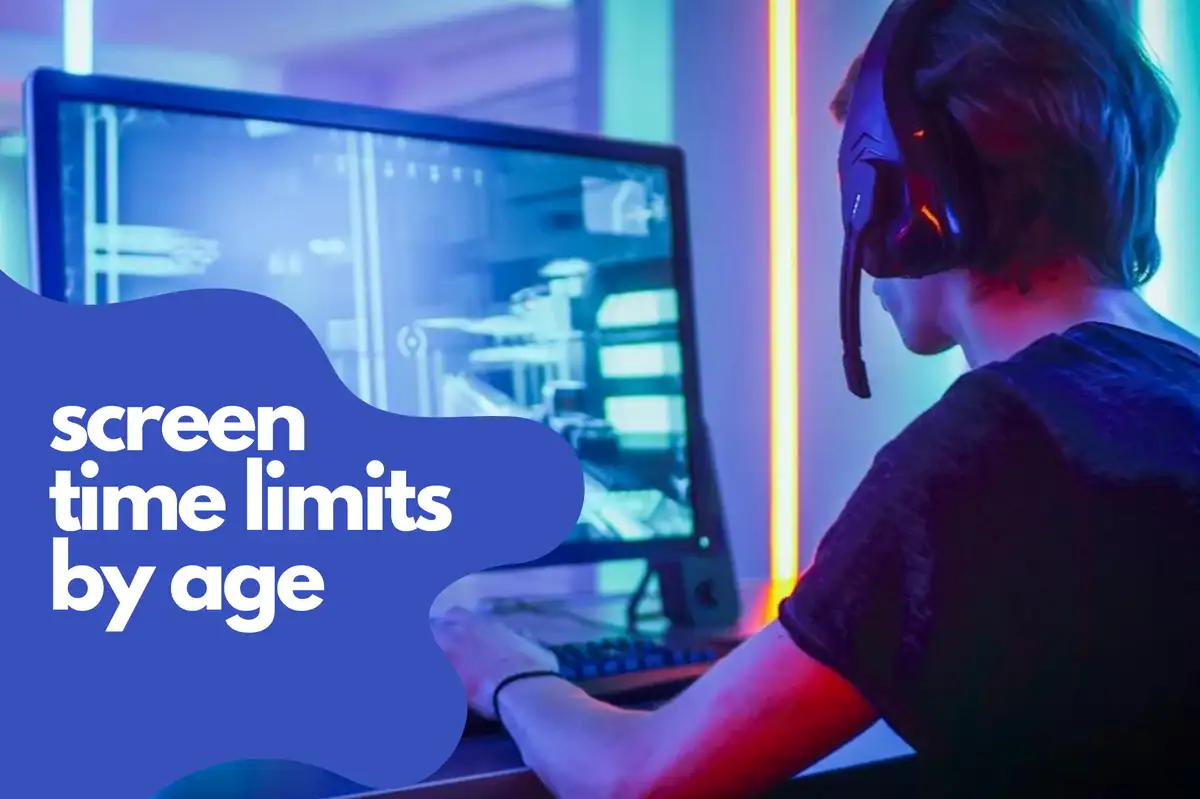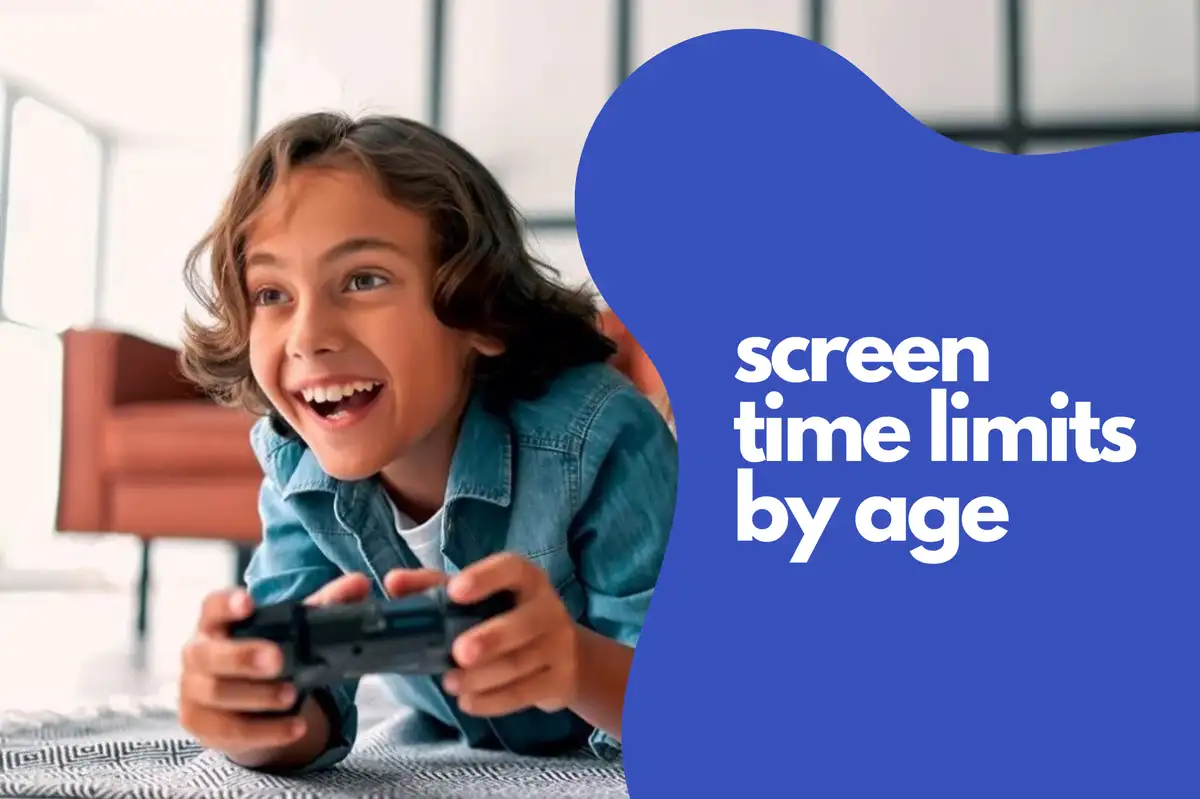What is Screen Time?
Screen time refers to the amount of time spent using devices with screens, such as smartphones, tablets, computers, and television. In today's digital age, screens are an integral part of our daily lives, making it crucial to establish healthy habits around their use.Why Is It Important to Limit Screen Time?
Excessive screen time can have several negative effects on mental health, digital well-being, and social skills, especially for children and teenagers. Therefore, it's essential to establish appropriate screen time limits by age to ensure a balanced lifestyle.Recommended Amount of Screen Time by Age

Infants and Toddlers (0-2 years)
For children under 18 months, it's best to avoid screen time altogether, except for video chatting with family and friends. For toddlers between 18 and 24 months, limit screen time to supervised, high-quality educational content.Preschoolers (3-4 years)
Preschoolers should have no more than one hour of screen time per day, focusing on educational and age-appropriate content that encourages interaction with caregivers.School-Age Children (5-12 years)
School-age children can have up to two hours of screen time per day, with a focus on educational and age-appropriate content. This limit should also account for any screen time related to schoolwork.Teenagers (13-18 years)
Teenagers should limit screen time to no more than three hours per day, excluding time spent on schoolwork. Encourage them to balance screen time with other activities, such as sports, hobbies, and socializing.Adults (18+ years)
For adults, it's essential to maintain a healthy balance between work and leisure screen time. Consider setting limits on social media and recreational screen use, prioritizing physical and mental well-being.Maximum Screen Time by Age
The Importance of Setting Limits
Establishing clear limits on screen time helps prevent excessive use that can lead to negative health outcomes and a sedentary lifestyle. It also encourages children and adults to engage in other essential activities, such as exercise, hobbies, and social interaction.Factors to Consider
When determining maximum screen time limits, consider the individual's age, overall well-being, and specific needs. Also, take into account any screen time related to school or work and adjust limits accordingly.Screen Time Age Limit
When Should Children Have Access to Screens?
Introducing screens at an early age can hinder developmental progress, so it's essential to delay screen exposure until at least 18 months old. From then on, gradually increase screen time allowances based on the child's age and maturity level.How to Enforce Age-Appropriate Screen Time Limits
Establish rules and routines around screen time, and communicate these expectations to your child. Monitor their screen time usage and encourage open dialogue about their experiences with digital devices.Recommended Maximum Screen Time by Age
Balancing Screen Time with Other Activities
Setting maximum screen time limits is only one aspect of fostering a healthy digital lifestyle. Encourage children and adults to balance screen time with other activities that promote physical, mental, and social well-being.Encouraging Healthy Screen Time Habits
Model healthy screen time habits by setting personal limits and engaging in alternative activities. Offer support and guidance to help children and teenagers develop a well-rounded approach to digital device use.The Effects of Excessive Screen Time
Physical Health
Excessive screen time can contribute to obesity, sleep disturbances, and eye strain. Encourage regular breaks and physical activity to counteract these potential health risks.Mental Health
Overuse of screens may lead to increased anxiety, depression, and attention problems. Establishing screen time limits and promoting open communication can help mitigate these risks.Social Skills
Excessive screen time can hinder the development of social skills in children and teenagers. Encourage face-to-face interactions and participation in group activities to foster social development.Tips for Managing Screen Time
Set Clear Boundaries
Establish rules and expectations around screen time usage. Be consistent and transparent when enforcing these boundaries.Establish Routines
Create routines that incorporate designated screen time and alternative activities. Consistent routines can help manage expectations and reduce conflicts related to screen time.Encourage Outdoor and Social Activities
Promote a well-rounded lifestyle by encouraging outdoor play, sports, hobbies, and social interactions with peers and family members. Setting appropriate screen time limits by age is crucial for maintaining a healthy, balanced lifestyle. By understanding the recommended and maximum screen time limits, you can help promote positive habits and reduce the potential negative effects of excessive screen use.Avosmart: Assisting Parents in Monitoring and Managing Children's Screen Time Limits
Avosmart is a leading parental control platform that empowers parents to monitor and manage their children's screen time for games and websites effectively. By offering detailed insights into children's digital media usage, Avosmart enables parents to set healthy boundaries and promote responsible screen time habits.How Avosmart Works
With Avosmart, parents can set daily limits for apps and websites, as well as create hourly schedules. The platform allows for the combination of time limits and schedules, enabling parents too, for example, set a 2-hour daily limit only between 4 PM and 8 PM when they are at home and can additionally supervise their children's online activities.Additional Features
Avosmart also provides the option to block device usage during nighttime hours, ensuring children maintain healthy sleep routines. By offering a comprehensive and customizable solution, Avosmart supports parents in creating a well-balanced digital environment for their children.Integrating Avosmart into Your Screen Time Management Strategy
To make the most of Avosmart's features, consider incorporating the platform into your overall screen time management strategy. By doing so, you can more effectively monitor your child's digital media consumption and enforce age-appropriate screen time limits, fostering a healthier relationship with screens and promoting overall well-being. To learn more about Avosmart and how it can help you manage your child's screen time, visit its website and explore the platform's various features and benefits.FAQs Screen Time Limits by Age
At what age should children be introduced to screens?
It is recommended to avoid screen time for children under 18 months, except for video chatting. After 18 months, you can gradually introduce supervised, high-quality educational content.How much screen time should teenagers have per day?
Teenagers should limit their screen time to no more than three hours per day, excluding time spent on schoolwork.Can excessive screen time affect mental health?
Yes, excessive screen time has been linked to increased anxiety, depression, and attention problems.How can I help my child develop healthy screen time habits?
Establish clear boundaries, create routines, and encourage outdoor and social activities. Modeling healthy screen time habits yourself can also be helpful.Is it necessary for adults to limit their screen time?
While there aren't specifically recommended limits for adults, it's essential to maintain a healthy balance between work and leisure screen time to prioritize physical and mental well-being.How can I monitor my child's screen time?
There are several methods to monitor your child's screen time, such as:- Setting up parental controls on devices
- Using screen time tracking apps
- Regularly checking device usage history
- Establishing designated screen-free zones and times
Can screen time affect sleep quality?
Yes, excessive screen time, particularly before bedtime, can disrupt sleep patterns and quality. The blue light emitted from screens can interfere with the production of melatonin, a hormone responsible for regulating sleep. To promote better sleep, establish a screen-free routine at least one hour before bedtime.How can I encourage my child to engage in other activities besides screen time?
Encourage your child to explore various interests, such as sports, hobbies, or clubs. Offer support and engage in these activities with them whenever possible. Establishing designated screen-free times can also create opportunities for alternative pursuits.What are some signs that my child may be spending too much time on screens?
Some signs that your child may be spending too much time on screens include:- Poor academic performance
- Reduced physical activity
- Sleep disturbances
- Mood swings and irritability
- Social isolation
How can I help my child establish a healthy relationship with screens?
To help your child establish a healthy relationship with screens, consider the following tips:- Set age-appropriate screen time limits
- Model healthy screen time habits
- Encourage open communication about their digital experiences
- Promote a balanced lifestyle with alternative activities
- Teach them about responsible and safe online behavior

